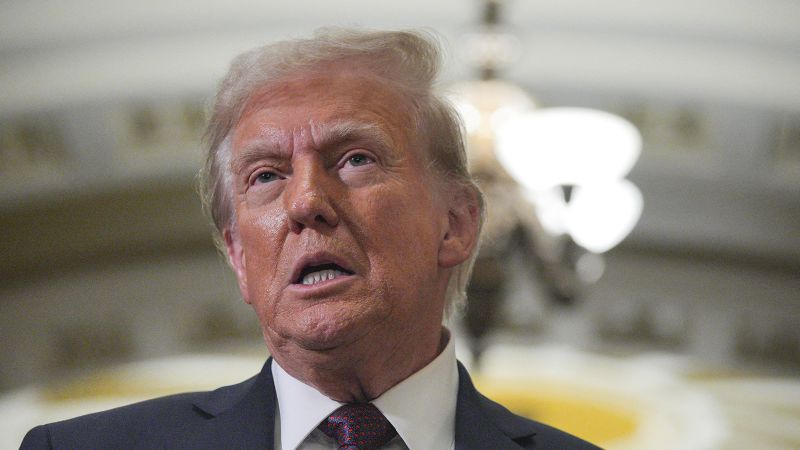CNN
—
Attorney General Merrick Garland has publicly released special counsel Jack Smith’s report on his investigation into Donald Trump and efforts to overturn the 2020 election, detailing the president-elect’s “criminal efforts to retain power.”
The more than 130-page report, which was submitted to Congress and released early Tuesday after a court hold blocking its release expired at midnight, spells out in extensive — if largely already known — detail how Trump tried to overturn the 2020 election. Smith’s team states in no uncertain terms that they believed Trump criminally attempted to subvert the will of the people and overturn the election results.
“As set forth in the original and superseding indictments, when it became clear that Mr. Trump had lost the election and that lawful means of challenging the election results had failed, he resorted to a series of criminal efforts to retain power,” the report states.
The release marks the special counsel’s final official word on his investigation into January 6, 2021, and the actions by Trump and his associates before then to interfere with the peaceful transfer of power.
The report contains a factual recitation of Trump’s attempts to overturn the 2020 election, including his “pressure on state officials,” the “fraudulent electors plan,” his “pressure on the Vice President” Mike Pence, and a section on how Trump’s supporters attacked the US Capitol on January 6. It essentially mirrors the landmark federal election subversion indictment that Smith brought against Trump in 2023, retooled in 2024 after the Supreme Court’s immunity ruling, and ultimately withdrew after Trump’s victory in the November election.
“Until Mr. Trump obstructed it, this democratic process had operated in a peaceful and orderly manner for more than 130 years,” Smith wrote, referring to Congress’ certification of the Electoral College results, under the Electoral Count Act of 1887.
Smith brought four charges against Trump in the 2020 election probe. But the case suffered setbacks culminating in the Supreme Court’s presidential immunity ruling last summer that set a very high bar for prosecuting a former president for his conduct in office. The special counsel dropped the case against Trump altogether after voters in November decided to return him to the White House.
But the special counsel’s office continued to investigate the unindicted co-conspirators after charging Trump, Smith said in his report.
The office found evidence that one subject of the investigation, who was not named, may have committed unrelated crimes, and that investigation was referred to a US attorney’s office, the report said.
In the federal election probe, the special counsel ultimately did not bring additional indictments, even as the prosecutors had made a “preliminary determination” that charges against “certain” co-conspirators could be justified.
“This Report should not be read to allege that any particular person other than Mr. Trump committed a crime, nor should it be read to exonerate any particular person,” the report said.
Before dropping the case against Trump, the office had begun a discussion over whether potential charges against additional co-conspirators would be brought in Trump’s case or in a separate case.
“Because the Office reached no final conclusions and did not seek indictments against anyone other than Mr. Trump – the head of the criminal conspiracies and their intended beneficiary – this Report does not elaborate further on the investigation and preliminary assessment of uncharged individuals,” Smith said.
The transmission of Smith’s January 6 findings came after the president-elect and his allies were unable to stop the department from releasing it. Their court maneuverings did, however, slow its release as the clock ticks toward the January 20 inauguration, as well as upend the department’s plans to release volume two of the report, which covers the classified documents investigation.
Garland does not intend to release that portion of the report publicly, but he had planned to allow a very small group of lawmakers to view it behind closed doors. US District Judge Aileen Cannon, however, extended an order that prevents him from sharing that volume to anyone outside of the department. A hearing on the matter is set for later this week.
This is a developing story and will be updated.
